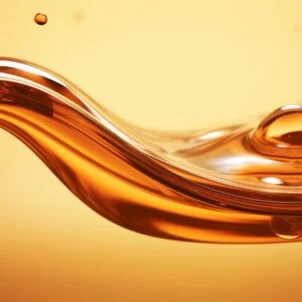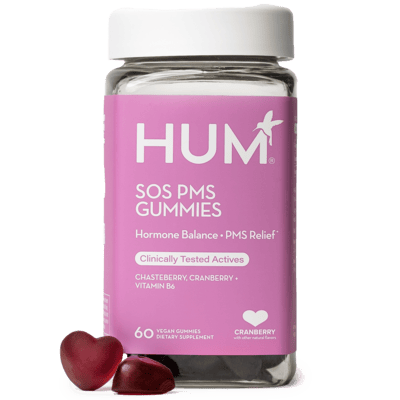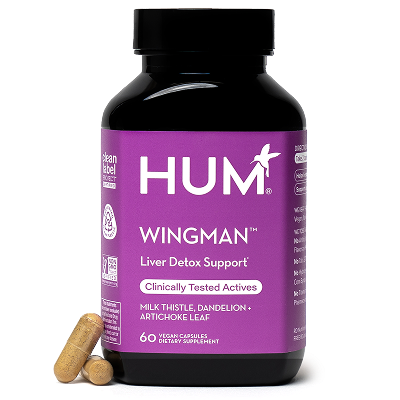Did you know that your liver’s health could be directly impacting your period’s symptom severity? Uh, we just caught onto this and had to do a deep dive for our HUM community. So, here it goes…
Every month, many women brace themselves for the dreaded PMS symptoms: cramping, bloating, and that all-too-familiar wave of discomfort. While we tend to blame hormones for this discomfort, the true culprit may be your liver. This powerhouse organ does far more than detox your Friday night cocktail; it plays a central role in hormone regulation, inflammation control, gut function, and metabolic balance—all of which directly impact how you feel before and during your period.
While responsible for so many functions in the body, understanding the liver’s role in your cycle can be a game-changer in managing your monthly discomfort—and may even help you feel more balanced, energized, and in tune with your body.
In this article, we explain the link between liver health and menstrual health.
How the Liver Impacts the Menstrual Cycle
One of the liver’s key jobs is to metabolize and filter out excess hormones, especially estrogen. When the liver is functioning properly, this process helps keep hormone levels in check and supports a more regular, less symptomatic menstrual cycle. The liver also helps regulate inflammation, supports gut health, and assists in the detoxification of everything from alcohol to environmental toxins. When these systems are balanced, your body is better equipped to maintain hormonal harmony.
However, when the liver is sluggish or overloaded, excess estrogen begins to accumulate and recirculate through the bloodstream. This surplus of estrogen throws off the delicate hormonal balance the body needs to maintain a healthy menstrual cycle. Typically, estrogen rises during the first half of the cycle and falls after ovulation, allowing progesterone to take the lead. But when estrogen lingers at higher levels, it can overpower progesterone, leading to a state called estrogen dominance.
Liver Dysfunction and Menstrual Symptoms
Estrogen Dominance and Period Pain
Factors like stress, poor diet, medications, alcohol, and even environmental toxins can have a ripple effect on your cycle. When this occurs, the liver cannot metabolize estrogen efficiently, leading to estrogen dominance—a condition where estrogen levels outweigh those of progesterone, affecting the menstrual cycle. Dr. Shawn George, a physician at Yorktown Health, says, “Elevated estrogen can lead to a thicker uterine lining, resulting in heavier or longer periods, and it can also contribute to irregular cycle lengths. Some individuals in my practice experiencing significant PMS symptoms have shown hormonal profiles consistent with estrogen dominance, and addressing this imbalance can often improve their menstrual health.”
Bloating, Water Retention, and Inflammation
High estrogen levels also promote water retention and inflammation, leading to the classic symptoms of bloating, puffiness, and digestive discomfort. Poor liver health can also affect your gut, another key player in hormone regulation. Since estrogen also affects how the gut and liver function together, high circulating estrogen can further strain these systems, creating a vicious cycle of hormonal buildup and worsening monthly symptoms.
Supporting Liver Health for a Better Cycle
The good news? A few intentional changes can go a long way in supporting your liver—and, by extension, your menstrual health. Here are some tips that can help improve your liver support:

- Stay well-hydrated: Drinking water consistently throughout the day helps flush toxins out of the body and supports healthy digestion.
- Limit alcohol intake: When the liver is busy breaking down alcohol, its ability to process and eliminate excess hormones like estrogen slows down, which can lead to hormonal imbalances.
- Incorporate liver-supporting supplements: HUM’s Wing Man supplement contains a blend of milk thistle, dandelion root, and artichoke leaf, all supporting liver detoxification.
- Support your gut: A fiber-rich diet, probiotics, and fermented foods help maintain a healthy microbiome that supports the removal of excess hormones. Additionally, cruciferous vegetables like broccoli, cauliflower, and Brussels sprouts contain compounds that support estrogen metabolism. (Try eating these foods to reduce some of those painful side effects!)
- Move your body consistently: Regular exercise naturally supports the body’s detoxification process and regulates hormones for a healthy balance.
- Get a good night’s rest: “The liver achieves maximum detoxification and repair processing through rest periods due to the sufficient sleep duration”, George explains. Nightly rest plays a vital role because it helps the liver continue working efficiently over time, healing the body.
Your period doesn’t have to feel like a battle. If you’re dealing with recurring menstrual pain, bloating, and emotional swings, it’s worth looking beyond your hormones and taking a deeper look at your liver health. While often overlooked, the organ is at the heart of hormone metabolism, inflammation regulation, and detoxification—all of which are essential for a healthy, pain-free menstrual cycle. By showing your liver a little love and self-care, you can transform your monthly experience from frustrating to manageable—and maybe even empowering.

Painful Period Hacks Rated: From Castor Oil Packs to Supplements and More

Your Down-There Care Guide: Foods To Keep Your Summer Vibe in Balance

Gut Feelings: How to Choose Cooking Oils That Won’t Leave You Bloated







